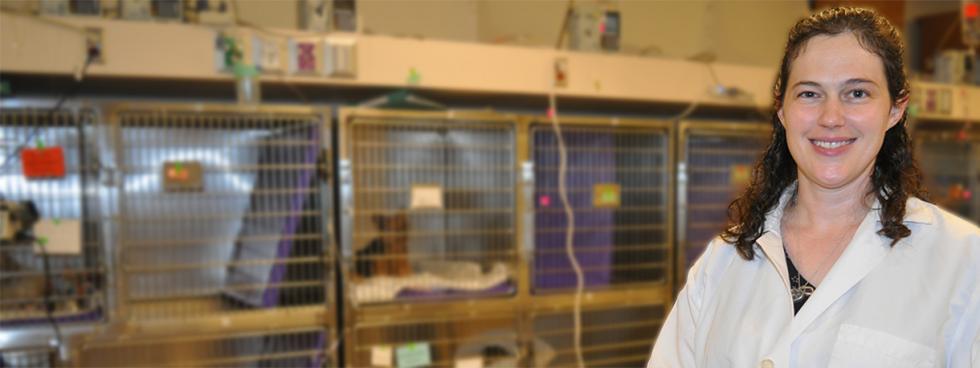
A Life Saving Procedure
When a dog was recently admitted to the Hixson-Lied Small Animal Hospital in the College of Veterinary Medicine’s Intensive Care Unit, the clinicians on duty really had only one option.
“We had to do a total plasma exchange on the dog, otherwise his condition was fatal,” said Dr. April Blong, assistant professor of veterinary clinical sciences. “Within a few hours of ingestion, the dog would have developed seizures and if he wasn’t treated, the dog would have died.”
The patient was admitted to the ICU after eating a massive (fatal) dose of ibuprofen. In this case, the dog’s owners estimated he ate approximately 50,000 mg (over 3000 mg per pound) of the drug.
After consulting with the owners, Blong and her Critical Care team decided on a total plasma exchange treatment. The Hixson-Lied Small Animal Hospital is the only clinic in Iowa that performs the procedure.
The procedure involves taking out a portion of the patient’s blood, running it through a centrifuge where the liquid protein is removed that contains the toxin, leaving just red blood cells. The patient is then given back the red blood cells and the procedure is repeated.
And repeated. And repeated.
“It took about 15 to 16 times to complete a single total plasma exchange,” Blong said. “It’s very time consuming and labor intensive.”
At any one time, about 10 percent of the patient’s blood is removed and by the time the procedure is completed, approximately 80 percent of the plasma has been replaced taking the toxin with it.
In addition to the total plasma exchange, the Iowa State Critical Care team performed other advanced therapies such as an IV lipid emulsion therapy to prevent the toxin from getting into the patient’s tissues.
This particular case was the fourth time the Hixson-Lied Small Animal Hospital has performed a total plasma exchange. Blong and Dr. Rebecca Walton, clinical assistant professor of veterinary clinical sciences, have taken on-line classes on the procedure.
“We recognized a need and since we had the capability and equipment to do this we decided to offer the service,” Blong said. “We don’t offer to every patient but do for cases that we think it would be beneficial for.”
September 2019
